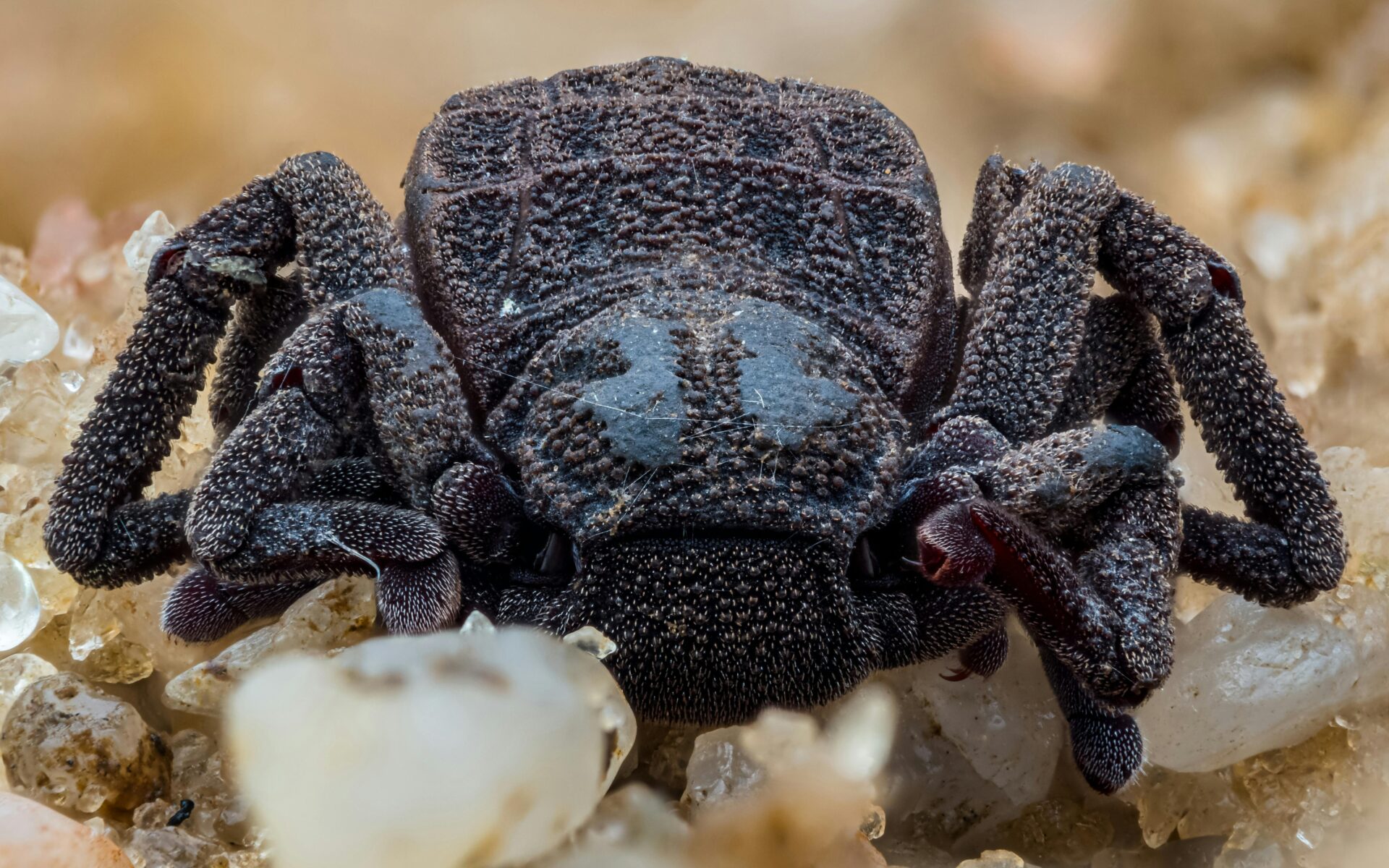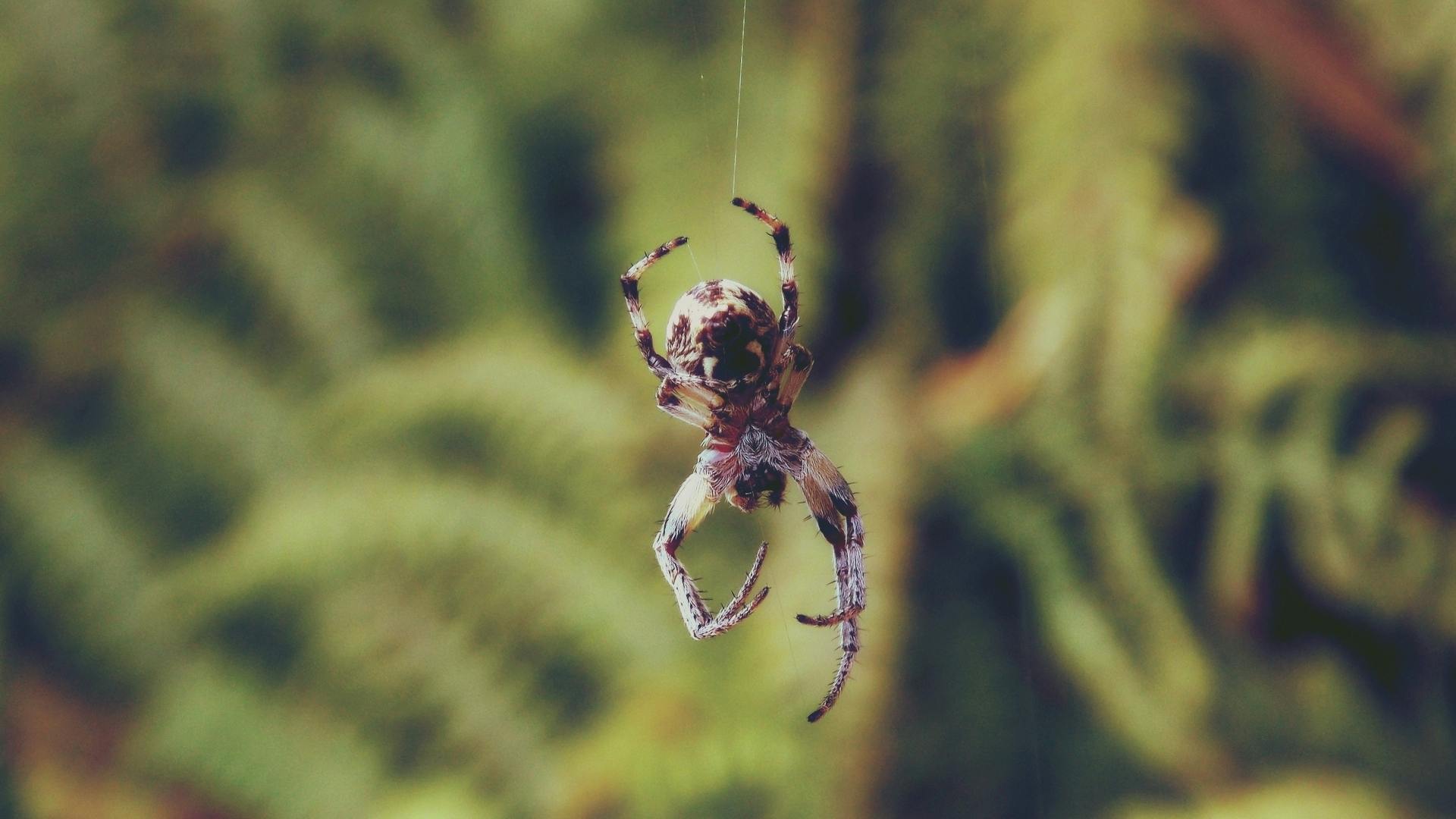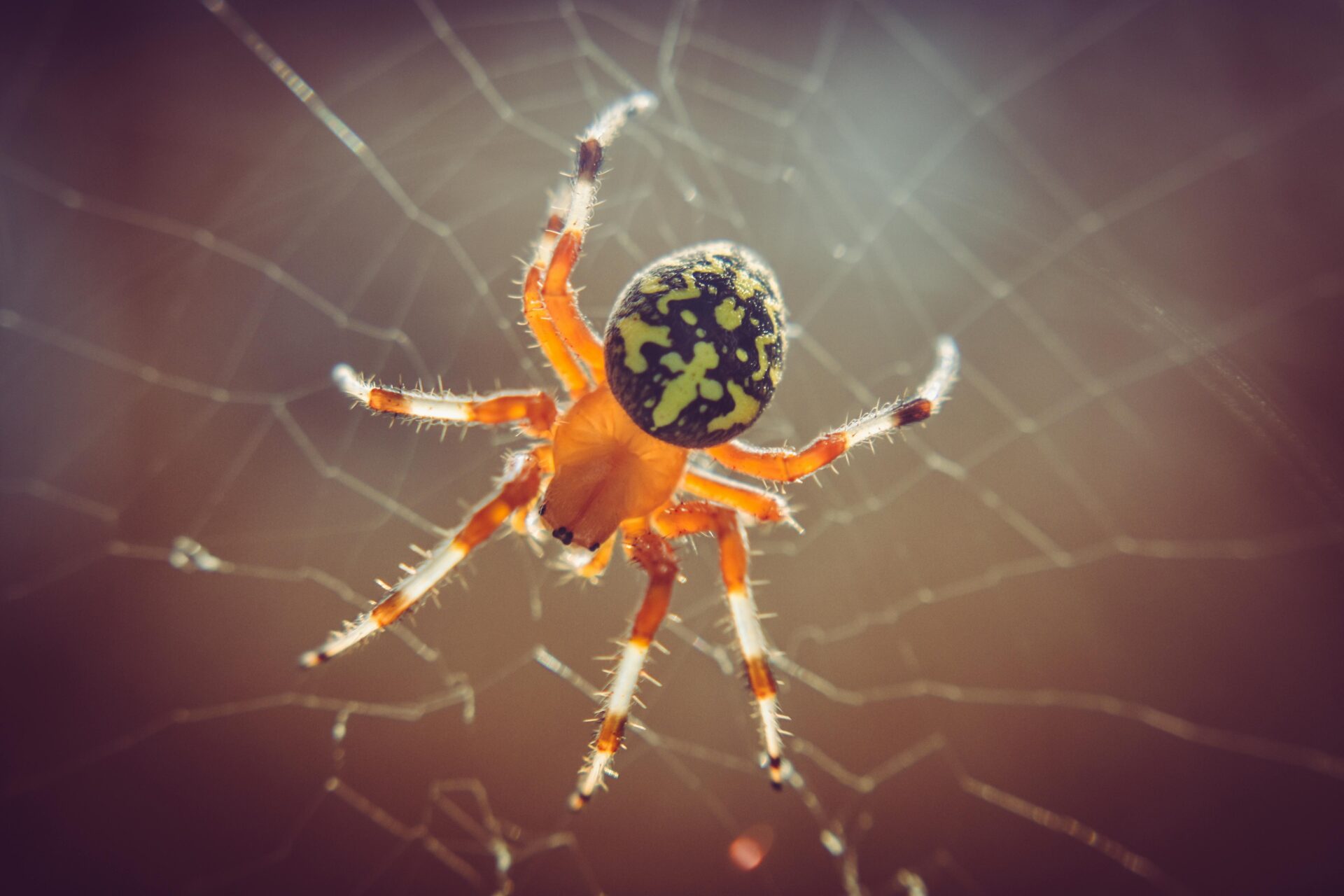Have you ever wondered if spiders actually sleep? It's one of those quirky questions that pop into your head late at night while staring at the ceiling. Well, let’s dive deep into this web of curiosity because spiders are more fascinating than you might think. Whether you’re a fan of these creepy crawlies or they give you the heebie-jeebies, their resting habits are worth exploring. So, buckle up, because we’re about to uncover the truth behind spider slumber!
Now, you might be thinking, "Do spiders even need rest?" The short answer is yes, but it’s not exactly like how humans or other animals sleep. Instead of shutting their eyes and dreaming about fly snacks, spiders have their own unique way of recharging. In this article, we’ll break down everything you need to know about spider sleep patterns, and trust me, it’s a wild ride.
So why does this matter? Understanding how spiders rest can give us insights into their behavior, biology, and even evolution. Plus, it’s just plain cool to know that these tiny creatures have their own version of bedtime routines. Let’s get started and unravel the mystery of spider sleep!
- Kamo Bandz Leaks The Untold Story Of Hype Drama And Influence
- Jacob Nicholas Caan The Rising Star Whorsquos Turning Heads In Hollywood
What Does It Mean for Spiders to Sleep?
When we talk about "spider sleep," we’re not referring to the kind of deep, REM-filled rest humans experience. Instead, spiders go through periods of inactivity where their metabolic rates slow down. This state isn’t technically sleep as we know it, but it serves a similar purpose: conserving energy for hunting, building webs, and reproducing.
Think of it like a power-saving mode on your phone. Spiders don’t have eyelids, so they can’t close their eyes to signal that they’re resting. Instead, they find quiet spots in their webs or hideaways to conserve energy. During these times, their movements become minimal, and they appear almost motionless.
How Do Scientists Study Spider Sleep?
Studying spider sleep isn’t as straightforward as observing a dog napping or a cat curled up in a sunbeam. Researchers use various methods to determine when spiders are resting. One common technique involves monitoring their activity levels over time. By tracking their movements and comparing them to periods of inactivity, scientists can identify patterns that resemble sleep.
- Bollyflix Official Your Ultimate Destination For Bollywood Entertainment
- Iribitari Gal Live Action The Ultimate Guide To This Phenomenon Thats Got Everyone Talking
- Scientists observe spiders in controlled environments to rule out external factors like predators or weather changes.
- They measure physiological responses, such as heart rate and breathing, to detect changes during rest periods.
- Some studies even use high-speed cameras to capture subtle movements that indicate a spider is in its "rest mode."
Do Spiders Have a Sleep Cycle?
Unlike humans, who follow a 24-hour circadian rhythm, spiders don’t adhere to a strict sleep schedule. Their resting periods are influenced by environmental factors like light, temperature, and food availability. Some species are more active during the day, while others prefer the cover of darkness to hunt and rest.
For example, orb-weaving spiders often build their webs at night and retreat to a hiding spot during the day. This behavior helps them avoid predators and conserve energy for nighttime hunting. On the other hand, hunting spiders like wolf spiders are more active during the day, using their keen eyesight to stalk prey.
Factors That Affect Spider Sleep Patterns
Several factors play a role in determining when and how long spiders rest:
- Light Levels: Many spiders are nocturnal, meaning they are most active at night. Darkness triggers their hunting instincts and encourages them to rest during the day.
- Temperature: Colder temperatures can slow down a spider’s metabolism, causing them to enter a deeper state of rest.
- Food Availability: If food is scarce, spiders may extend their resting periods to conserve energy until conditions improve.
Why Do Spiders Need Rest?
Rest is essential for spiders, just like it is for humans and other animals. During these periods of inactivity, spiders can repair damaged tissues, process nutrients from their meals, and prepare for future activities. Without proper rest, they wouldn’t have the energy needed to build intricate webs, catch prey, or reproduce.
Interestingly, some studies suggest that spiders may experience something akin to dreaming. While we can’t know for sure what goes on in their tiny brains, researchers have observed twitching legs and antennae during rest, which could indicate neural activity similar to dreaming in mammals.
The Importance of Sleep in Spider Survival
Sleep plays a crucial role in a spider’s survival. By conserving energy, spiders can survive long periods without food and adapt to changing environments. This ability is especially important for species living in harsh climates or areas with limited resources.
Additionally, rest allows spiders to maintain their physical health. Just like humans need sleep to boost immunity and repair cells, spiders rely on rest to keep their bodies functioning optimally. Without it, they would be more vulnerable to diseases and predators.
Common Misconceptions About Spider Sleep
There are plenty of myths surrounding spider behavior, including their sleeping habits. Let’s debunk a few of the most common ones:
- Spiders Close Their Eyes: As mentioned earlier, spiders don’t have eyelids, so they can’t close their eyes to signal that they’re sleeping.
- Spiders Sleep Like Humans: Spiders don’t experience REM sleep or dream in the same way humans do. Their resting state is more like a period of reduced activity.
- Spiders Are Always Awake: While spiders may seem constantly active, especially if you’ve ever seen one scurrying across your floor, they do take breaks to recharge.
Clearing Up the Confusion
It’s easy to misunderstand spider behavior, especially since they don’t exhibit the same signs of sleep as mammals. However, by studying their activity patterns and physiological responses, scientists have been able to shed light on their resting habits. Next time you see a motionless spider, remember that it might just be catching some Z’s!
How Do Different Spider Species Sleep?
Not all spiders rest in the same way. Different species have adapted unique strategies to ensure they get the rest they need. Let’s take a closer look at a few examples:
Orb-Weaving Spiders
Orb-weaving spiders are known for their impressive webs, which they construct during the night. During the day, they retreat to a safe spot near their web, often hanging upside down or curling up in a ball. This position helps them conserve energy and remain hidden from predators.
Hunting Spiders
Hunting spiders, like wolf spiders and jumping spiders, are more active during the day. They rely on their speed and agility to catch prey, so they tend to rest in short bursts between hunts. These spiders often find shelter under rocks, leaves, or other protective surfaces to avoid detection.
Tarantulas
Tarantulas are another fascinating example of spider sleep behavior. These large, hairy arachnids often burrow into the ground or hide in dark crevices during the day. At night, they emerge to hunt for insects and small animals. Their resting periods can last several hours, allowing them to recover from their nocturnal adventures.
Do Spiders Dream?
While we can’t say for certain whether spiders dream, there is evidence to suggest that they experience some form of neural activity during rest. Researchers have observed twitching legs and antennae in sleeping spiders, which could indicate dreaming or processing information.
Imagine a spider dreaming about catching its next meal or weaving the perfect web. It’s a fun thought, even if we’ll never know exactly what goes on in their tiny brains. What we do know is that rest is vital for maintaining their cognitive abilities and overall health.
What Do Spider Dreams Look Like?
Although we can’t directly observe spider dreams, we can speculate based on their behavior and biology. Perhaps they dream about stalking prey, weaving intricate webs, or even escaping predators. Whatever the case may be, their resting state is clearly an important part of their daily routine.
Fun Facts About Spider Sleep
Here are a few interesting tidbits about spider sleep that might surprise you:
- Some spiders can rest for up to 24 hours at a time if conditions are unfavorable.
- Spiders don’t snore, but they might make subtle movements during rest that resemble twitching.
- Web-building spiders often incorporate resting spots into their designs, creating safe havens for themselves.
Why Should We Care About Spider Sleep?
Understanding spider sleep patterns can provide valuable insights into their behavior and ecology. By learning more about how these creatures rest and recharge, we can better appreciate their role in ecosystems and even apply this knowledge to other fields of study.
For example, studying spider sleep could help us develop new technologies inspired by their resting strategies. Imagine creating energy-efficient devices that mimic a spider’s ability to conserve resources during periods of inactivity. The possibilities are endless!
Conclusion: The Fascinating World of Spider Sleep
So, do spiders sleep? The answer is yes, but their resting habits are far from ordinary. From orb-weaving spiders hiding in their webs to tarantulas burrowing underground, each species has its own unique way of recharging. By studying spider sleep, we gain a deeper understanding of these incredible creatures and their place in the natural world.
Now that you’ve learned all about spider sleep, why not share this article with your friends and family? Or better yet, leave a comment below and let us know what you think. Who knows, you might just inspire someone else to explore the fascinating world of spiders!
Table of Contents
What Does It Mean for Spiders to Sleep?
How Do Scientists Study Spider Sleep?
Do Spiders Have a Sleep Cycle?
Factors That Affect Spider Sleep Patterns
The Importance of Sleep in Spider Survival
Common Misconceptions About Spider Sleep
- 9xmovies Biz The Ultimate Guide To Understanding Its Impact And Legitimacy
- Heather Joy Arrington The Rising Star Whorsquos Taking The World By Storm


